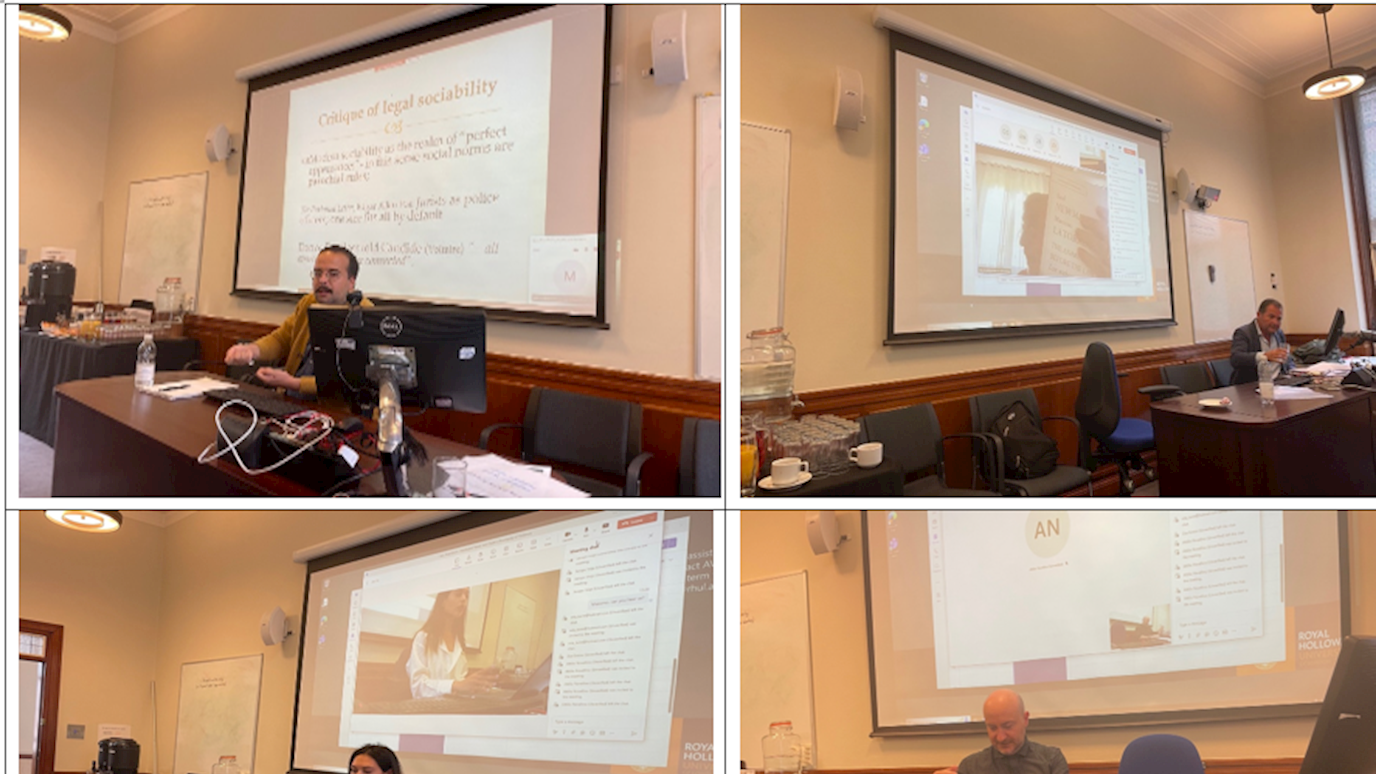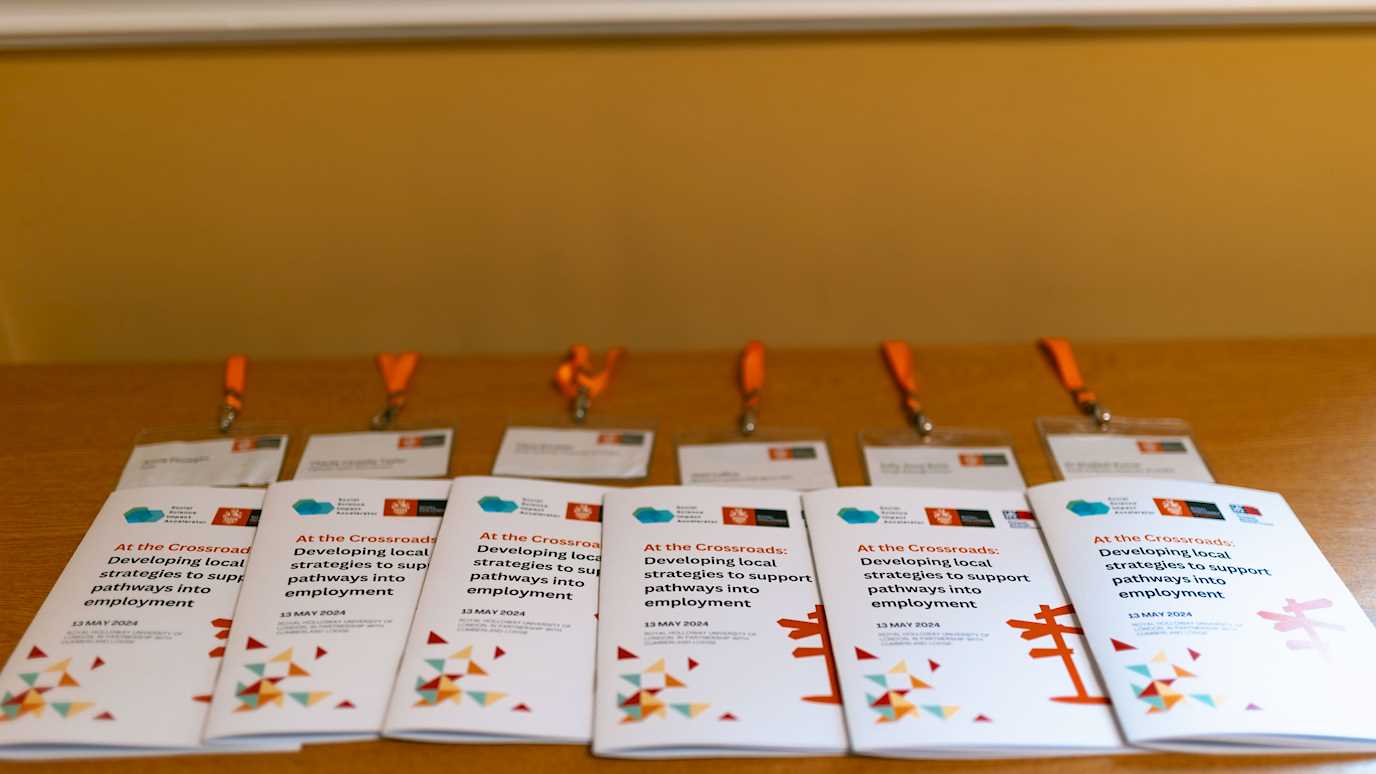The workshop aimed to focus on the anarchist critique of the state’s monopoly of violence and ponder on how we disorient and dispute this monopoly, without creating a new form of law.

The aim of the workshop was to focus on the anarchist critique of the state’s monopoly of violence and ponder on how we disorient and dispute this monopoly, without creating a new form of law and/or archē with a particular focus on the notion of destituent power and the (non)relationship between law and anarchism.
Five speakers, coming from the disciplines of legal, political theory and continental and analytic philosophical traditions, participated in the workshop. Below apart from the report, you can also find the recordings of each talk.
First Talk
The first talk was given by João Freitas Mendes (Vrije Universiteit Brussels) titled ‘A Non-Commercial Sociability’ and proposed that legal sociability is a mystification, that commercial law is practical and necessary but public law is merely an invention. Valverde’s ‘dialogue with strangers’ was used to raise the question of how to talk about rules with a five-year-old. Legal language is a source of social control and knowledge should be accessible, jurists act as police officers (as per Edgar Allen Poe) and whilst science can be objective, the law has different social interpretations and without allowing this creates social exclusion. The difference between business communities and play communities was further highlighted, business communities contaminate all communities and all values outside of commercial activities whereas play communities are essential in fostering cooperation. As per Samuel Von Pufendorf, only cooperation would allow men to free themselves.
Second Talk
The second talk was given by Professor Saul Newman (Goldsmiths, University of London) and Professor Massimo La Torre (Università di Catanzaro) who spoke on their recent book The Anarchist Before The Law: Law without Authority (Edinburgh University Press 2024). Professor Newman began by explaining the main positions presented in the book and the way that the authors envisage a different relationship between law and anarchism. To that extent, the book proposes a new way of thinking about institutionalism and institutions.. Anarchy does not mean lawlessness and does not inherently mean a lack of structure, merely bottom-up institutions with a horizontal process of democratic decision-making. With this, the burden of constant moral decisions are eased and new forms of autonomous life could be promoted. Professor Massimo La Torre then expanded on this, explaining how the notion of the institution gives sense to life, and describing it as ‘sense made effective’, concluding that anarchism is the theoretical and practical answer to the suffering caused by our obedience to the state. Instead, we need to be recognised in our own dignity.
Third Talk
Dr Serene Richards (New York University, London) then gave a talk on her new book Biopolitics as a System of Thought (Bloomsbury, 2024) which aims to tackle the issue of atrophy in thinking and living. With reference to the works of Giorgio Agamben, Dr Richards changes the question from ‘what I am’ to ‘how I am’ in an attempt at the dissolution of our current state of affairs.. The book aims to rectify the non-world that is uninhabitable. This is done by decentralising with the intention to allow self-evaluation and give the freedom to the people to invest in themselves. With this, we move away from the division into essence compared to existence that western ontology brings. The principle of destituent power includes whole metaphysical and ontological changes, which suggest that we must move to a society who can ask ‘how I am what I am’ instead of simply ‘what I am’.
Final Talk
The final talk was given by Dr Gian Giacomo Fusco (University of Kent) who spoke on his recent book Form of Life: Agamben and the Destitution of Rules (Edinburgh University Press, 2022), which examines Giorgio Agamben’s notion of ‘form of life.’ The book links the notion of form of life to practical political strategies, and presents Agamben as a post-anarchist. Dr Fusco also stated that the aim of the book is to understand destituent power in its own autonomy. In modern literature, or what there is of such, it is understood as the negative moment of the opening of a new. Destituent potential was stated not to be the destruction of something but a tool that opens a space where what we are and what we possess can be utilised differently. What we see of the law is the effect, and the effect is violence and sanctions. A new language of law is needed when the coercion and violence is removed, and removing coercion also inherently removes hierarchy, taking us back to a primitive power.
























